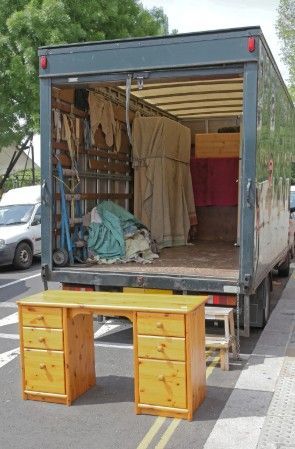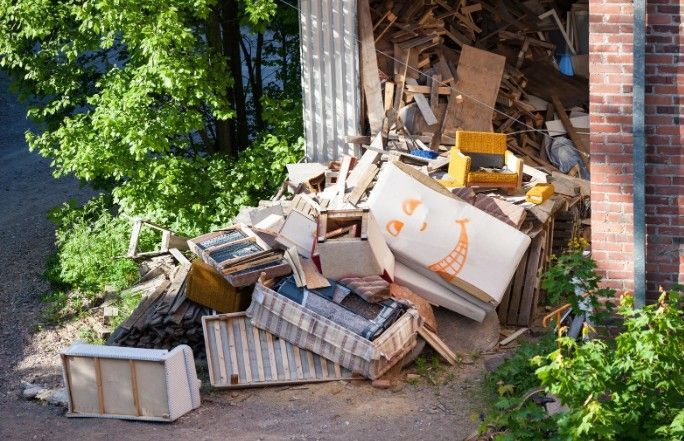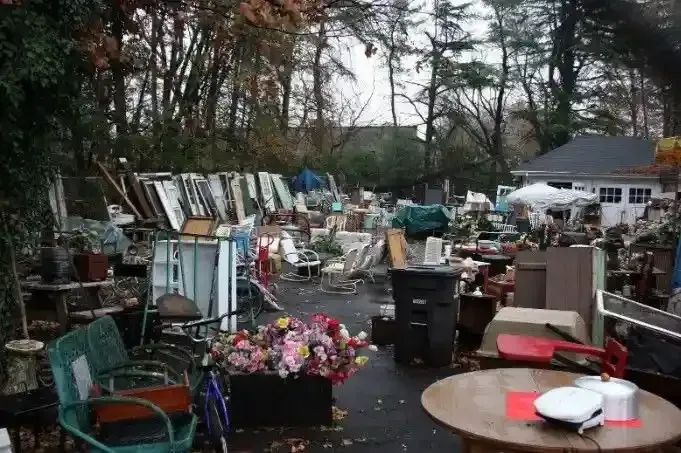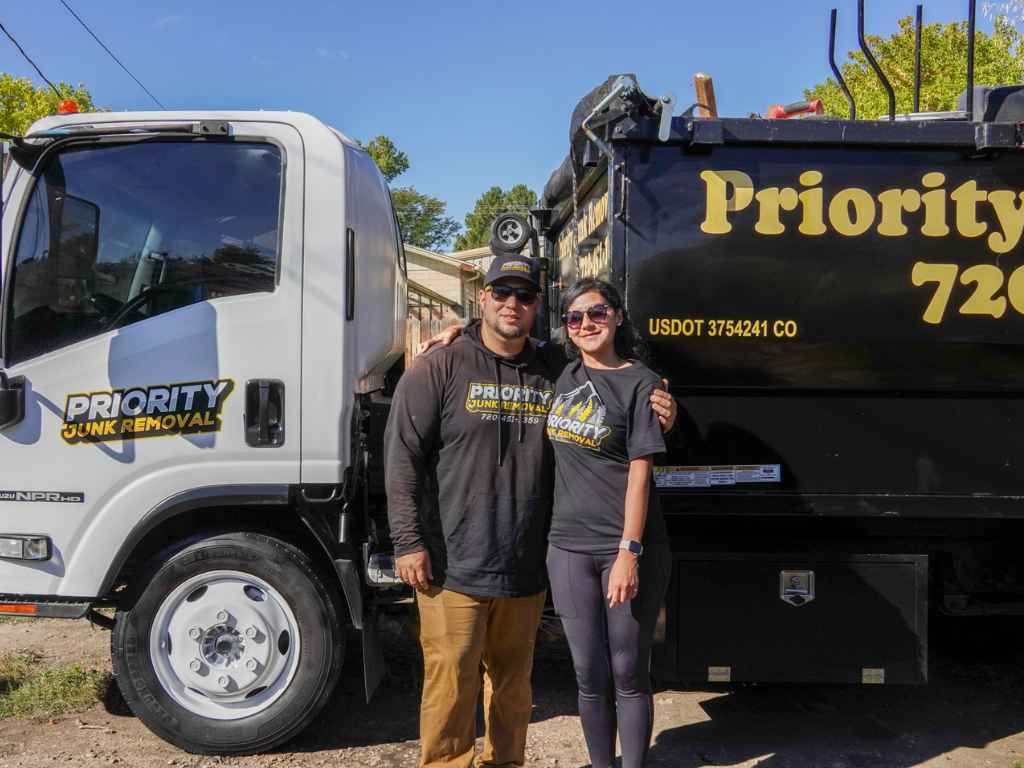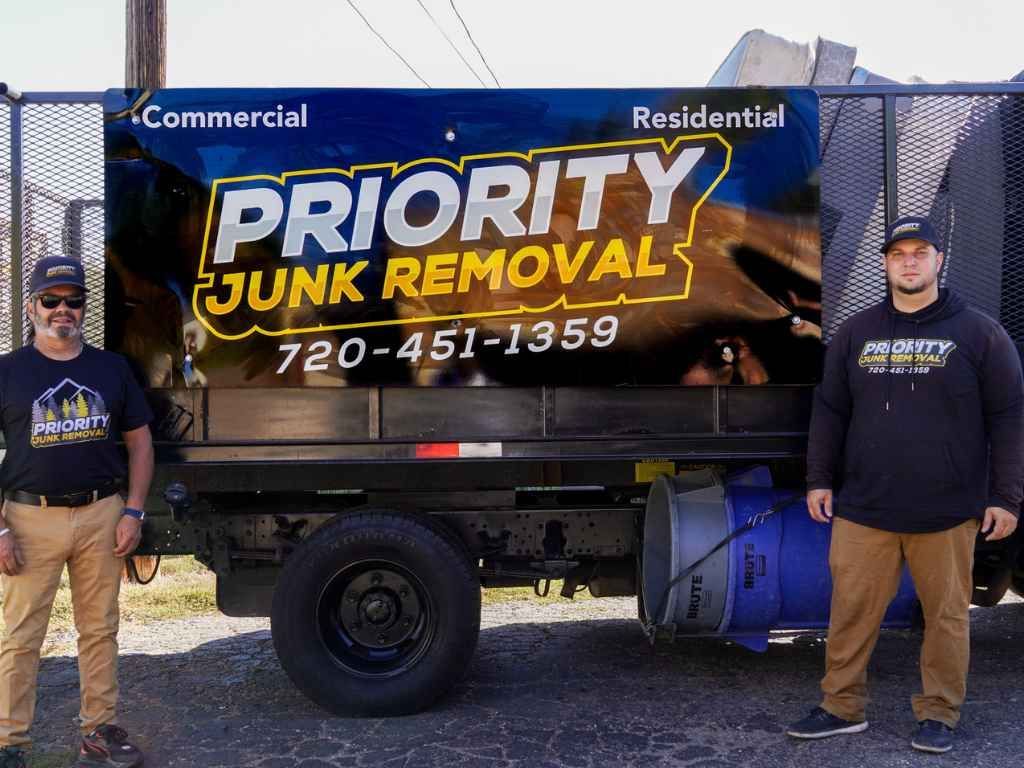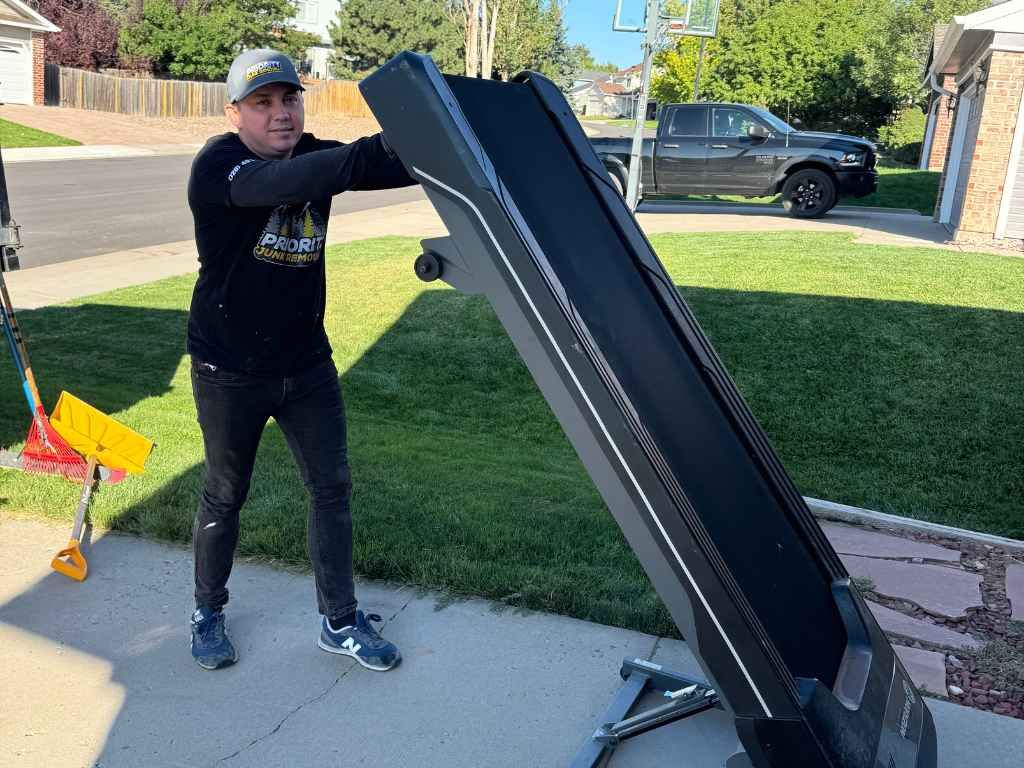The Business Case for Green Waste Disposal
In a world veering toward efficiency and sustainability, green waste disposal is no longer a mere checkbox for environmentally conscious citizens. It’s a layered, compelling solution that integrates economic logic with ecological intent. What once was tossed aside now becomes part of a broader mission—turning organic debris into opportunity. Homeowners, businesses, and municipalities that once ignored the power behind their organic refuse are now waking up to the impact of proper waste segregation.
Green waste disposal offers more than a pat on the back from Mother Nature. It mitigates unnecessary landfill overflow, cuts transportation costs, and revives soil through composting programs. The shift is strategic, not symbolic. It speaks to how the future operates—not just cleaner, but smarter. It’s about rethinking waste as a resource, giving new purpose to grass clippings, tree branches, and garden trimmings.
Why Green Waste is More Than Just Leaves and Twigs
Green waste often gets tossed aside as little more than lawn trimmings and garden debris—but it’s a hidden powerhouse in the cycle of urban sustainability. What seems like harmless clutter—fallen leaves, brush, twigs, grass—actually holds essential nutrients and untapped energy. When properly handled, this organic matter can be transformed into compost, mulch, or bioenergy, fueling the health of both natural and built environments.
Disposing of green waste responsibly isn't just about keeping your backyard clean; it’s a strategic move for cities aiming to conserve resources and reduce emissions. Instead of piling into methane-producing landfills, organic waste can feed gardens, support agriculture, and reduce the need for synthetic fertilizers. It’s a smarter, greener infrastructure model that turns yesterday’s debris into tomorrow’s growth. That pile of pruning clippings on your curb? It’s the beginning of something regenerative, not the end.
Local Landscapes Thrive When Green Waste Finds Purpose
Cities like Littleton experience a powerful transformation when green waste is diverted toward purpose. Think beyond raked leaves and bagged clippings—imagine a city where tree branches become moisture-locking mulch in local parks, and grass clippings enrich school gardens instead of decaying in a landfill. Every bin of organic waste collected has a direct, visible impact on the land. It nourishes public spaces, enhances soil quality, and conserves water. But the benefit doesn’t stop with the greenery.
Green waste disposal initiatives boost local economies, create jobs in composting and landscaping, and encourage community engagement. These aren’t lofty environmental dreams—they’re grounded, practical solutions with real returns. As more residents participate, the system strengthens. Public spaces become more vibrant, community gardens thrive, and the city’s ecosystem—both environmental and social—begins to flourish.
Reducing Greenhouse Gas Emissions Starts With Organic Waste
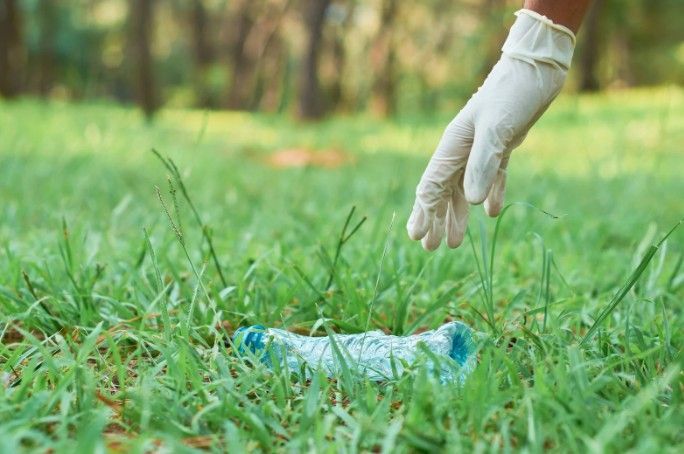
It may not feel revolutionary, but tossing green waste into the right bin is a crucial act of climate action. Organic matter left to rot in landfills doesn’t just break down—it releases methane, a greenhouse gas over 25 times more potent than CO₂. By simply redirecting this waste stream, cities can significantly cut their carbon footprint. Every ton of green waste composted instead of dumped offsets nearly half a ton of emissions.
The process is simple, scalable, and requires no sweeping legislation—just informed action and community participation. Households that separate their lawn trimmings contribute to cleaner air. Municipalities that collect and compost green waste move closer to climate goals. What begins as a quiet choice in the backyard has macro-level environmental effects. It’s not flashy, but it’s effective. Your bag of leaves? It’s climate mitigation in its most grassroots form.
How Green Waste Disposal Boosts Local Economies
Organic waste isn’t just biodegradable—it’s bankable. When communities view green waste as a resource instead of refuse, they unlock economic potential that benefits everyone from compost facility workers to farmers to eco-conscious startups. Composting centers need staff, equipment, and transportation—all of which create jobs. Landscaping companies thrive with access to low-cost, eco-friendly mulch. Farmers see better yields using compost-rich soil.
Even local businesses improve their environmental image by participating in green disposal programs. And the city? It saves money on landfill space and hauling fees. This isn’t theoretical—it’s a proven loop of productivity. What began as discarded twigs and yard clippings transforms into new commerce and stronger community services. It’s proof that sustainability isn’t a cost—it’s a catalyst. When waste becomes a product, the economy doesn’t just sustain—it grows, nourished by the very debris we used to discard.
Turning Waste Into Productive Soil Amendments
Green waste, when composted correctly, becomes a powerful tool for soil restoration. It’s not just about getting rid of yard clippings—it’s about transforming them into something agriculturally valuable. Compost is engineered to be nutrient-dense, moisture-retaining, and teeming with microbial life that revitalizes tired, overworked soils.
With consistent green waste collection, composting facilities can produce high-quality amendments that nourish everything from backyard gardens to large-scale farms. Residents in cities like Littleton participate in this process with simple acts—separating green waste from trash—and the payoff multiplies. Better compost means reduced need for synthetic fertilizers, which in turn leads to fewer pollutants in water supplies and healthier local ecosystems. This circular system makes your yard trimmings a secret agricultural ally.
Why Businesses Are Embracing Green Waste Programs
More businesses are realizing that green practices aren’t just good PR—they’re good operations. Green waste disposal has evolved from an optional sustainability gesture into a savvy business move. Construction firms save on landfill fees by separating organic site debris. Landscaping companies boost credibility by using recycled mulch. Property managers gain favor by partnering with eco-conscious disposal services.
All of this adds up to cost savings, improved brand perception, and compliance with growing environmental regulations. Plus, in a marketplace where consumers increasingly prioritize sustainability, businesses that go green attract loyalty. There’s a clear message in every compost bin: this company cares. Green waste programs allow businesses to align with environmental values without major overhead costs. It’s a shift toward smart, responsible practices that don’t just look good on paper—they pay off in real-world results, both financially and reputationally.
How Landfill Diversion Becomes a Municipal Success Story
Municipalities have a secret weapon in the fight against overflowing landfills—and it's green waste. Instead of treating organic debris as trash, cities are now positioning it as a pillar of environmental and economic strategy. The shift is pragmatic. By offering curbside pickup for green waste and investing in local composting centers, cities cut waste management costs, reduce methane emissions, and improve soil for public spaces. Education programs enhance participation, while policy changes support infrastructure. It’s not just theory—it’s practice with results.
Cities that adopt strong green waste programs see less waste headed to landfills and more greenery blooming in parks and gardens. These programs are budget-friendly, resident-supported, and environmentally sound. That’s a rare trifecta in public planning. When residents, government, and nature all benefit from the same initiative, you know you’ve found a formula worth scaling—and it all starts with what used to be thrown away.
Reimagining Urban Waste Systems Through Organic Solutions
Modern cities are learning that waste management isn’t just about where trash ends up—it’s about what potential is buried within it. Urban centers like Littleton are rethinking their systems by elevating green waste to a key part of city planning. Instead of long hauls to distant landfills, localized composting hubs process green waste into valuable materials close to where they’re needed. That means fewer emissions, less strain on infrastructure, and more community benefits.
Residential neighborhoods become the starting point for transformation. Organic refuse isn’t carted away to disappear—it’s processed, reused, and reinvested. These urban systems don’t just handle waste; they cultivate opportunity. By embracing green waste disposal, cities future-proof their infrastructure, support local jobs, and strengthen their relationship with the environment.
Compost Culture and the Rise of Conscious Disposal
Composting is no longer just for the backyard gardener—it’s a lifestyle, a movement, and a community-building tool. Across cities, schools, and businesses, there’s a growing recognition that green waste disposal is about more than convenience—it’s about responsibility. This cultural shift has created what many call “compost culture,” where people of all backgrounds take pride in reducing waste and enriching soil.
It's visible in school cafeteria bins, neighborhood gardens, and workplace green initiatives. What ties them together is a shared belief that organic matter has value when treated with care. Compost culture is reshaping public behavior, emphasizing mindfulness over mindlessness. By normalizing the act of separating clippings, leaves, and food scraps, we build not just better soil, but better habits.
Benefits of Green Waste Disposal
Green waste disposal plays a vital role in environmental sustainability and efficient resource management. By diverting organic materials like yard trimmings, branches, and grass clippings from landfills, we significantly reduce the volume of waste taking up precious landfill space. This not only extends the life of existing sites but also delays the need for costly expansions and new developments.
More importantly, keeping green waste out of landfills cuts down on methane emissions—a potent greenhouse gas produced during anaerobic decomposition. Through composting, this waste transforms into a nutrient-rich soil amendment that boosts soil health, increases crop yields, and minimizes the use of chemical fertilizers. Municipalities benefit from lowered waste management costs while generating employment in composting and landscaping sectors.
Conclusion
As Littleton continues to carve out its vision for a greener, more economically resilient future, embracing green waste disposal has evolved from a nice-to-have into an essential strategy. It’s not merely a matter of tidying up your yard or checking a box for environmental awareness—it’s about transforming waste into opportunity. Compostable materials that once clogged our landfills are now being redirected to nourish soil, fuel local jobs, and reduce harmful emissions.
Priority Junk Removal is proud to be at the forefront of this movement, offering timely, customized services that align with today’s sustainability goals. Whether you're a homeowner looking to simplify or a business ready to lead by example, we’re here to help you shift from old habits to new solutions. Connect with Priority Junk Removal in Littleton at 720-451-1359 or email priorityjunkremoval@gmail.com.

